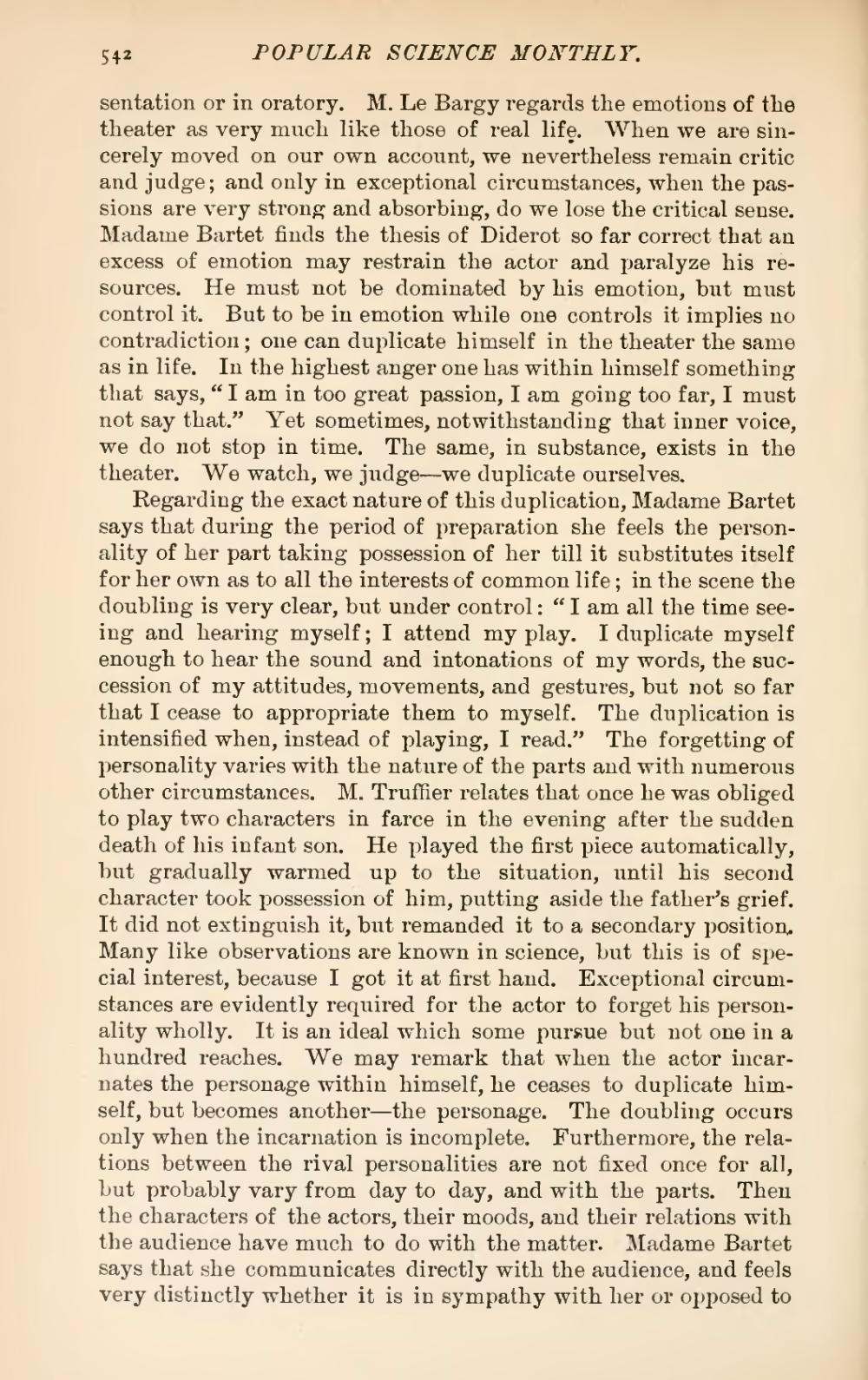sentation or in oratory. M. Le Bargy regards the emotions of the theater as very much like those of real life. When we are sincerely moved on our own account, we nevertheless remain critic and judge; and only in exceptional circumstances, when the passions are very strong and absorbing, do we lose the critical sense. Madame Bartet finds the thesis of Diderot so far correct that an excess of emotion may restrain the actor and paralyze his resources. He must not be dominated by his emotion, but must control it. But to be in emotion while one controls it implies no contradiction; one can duplicate himself in the theater the same as in life. In the highest anger one has within himself something that says, "I am in too great passion, I am going too far, I must not say that." Yet sometimes, notwithstanding that inner voice, we do not stop in time. The same, in substance, exists in the theater. We watch, we judge—we duplicate ourselves.
Regarding the exact nature of this duplication, Madame Bartet says that during the period of preparation she feels the personality of her part taking possession of her till it substitutes itself for her own as to all the interests of common life; in the scene the doubling is very clear, but under control: "I am all the time seeing and hearing myself; I attend my play. I duplicate myself enough to hear the sound and intonations of my words, the succession of my attitudes, movements, and gestures, but not so far that I cease to appropriate them to myself. The duplication is intensified when, instead of playing, I read." The forgetting of personality varies with the nature of the parts and with numerous other circumstances. M. Truffier relates that once he was obliged to play two characters in farce in the evening after the sudden death of his infant son. He played the first piece automatically, but gradually warmed up to the situation, until his second character took possession of him, putting aside the father's grief. It did not extinguish it, but remanded it to a secondary position. Many like observations are known in science, but this is of special interest, because I got it at first hand. Exceptional circumstances are evidently required for the actor to forget his personality wholly. It is an ideal which some pursue but not one in a hundred reaches. We may remark that when the actor incarnates the personage within himself, he ceases to duplicate himself, but becomes another—the personage. The doubling occurs only when the incarnation is incomplete. Furthermore, the relations between the rival personalities are not fixed once for all, but probably vary from day to day, and with the parts. Then the characters of the actors, their moods, and their relations with the audience have much to do with the matter. Madame Bartet says that she communicates directly with the audience, and feels very distinctly whether it is in sympathy with her or opposed to

